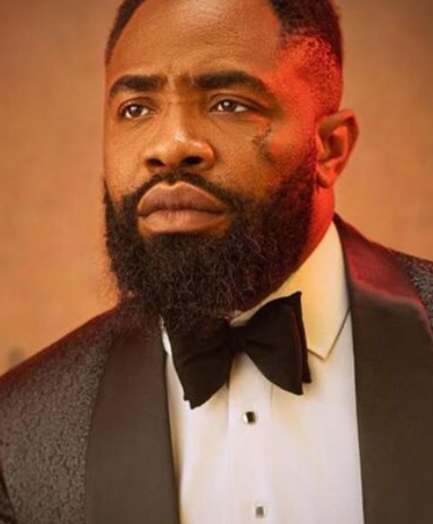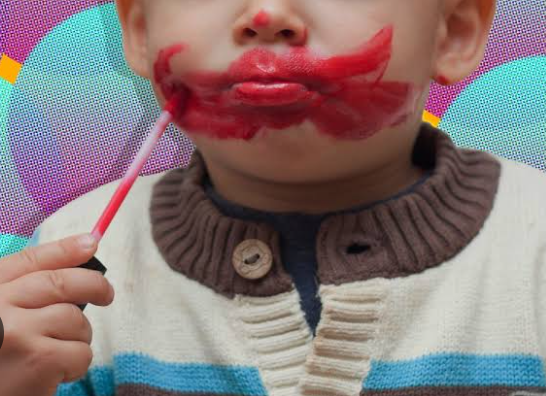
Woli Arole Sparks Debate as He Condemns Women Who Step Out Without Bra

Popular Nigerian comedian, Woli Arole, has stirred heated reactions on social media after publicly frowning at what he described as an alarming rise in indecent dressing among women who attend public events without wearing bras. The entertainer, who is known for his bold commentaries laced with comic expressions and religious undertones, took to his Instagram page to express his disapproval of ladies he claimed have turned braless outings into a norm. His statement, though made with a tone of frustration and urgency, has opened up yet another controversial chapter in the never-ending discourse on morality, decency, and personal freedom in the Nigerian social space.
Woli Arole, whose real name is Bayegun Oluwatoyin, posted a note on his verified Instagram account where he lamented how shocking it has become to see women attend events as important as weddings and birthday parties without wearing bras under their outfits. In his words, “It is highly INDECENT for a lady to go out to a public event and wear clothes without BRA, for GOD sake!!! You see wedding guest without bra. Haaaaa!!! Birthday guest without BRA. It’s BAD!!! Be DECENT, anyone that defends braless outing is also INDECENT in her thought!!! Let’s stop INDECENCY!!!”
The post, delivered in his usual emphatic style with capital letters and repeated exclamations, immediately attracted thousands of likes, comments, and reposts. While a significant number of his followers hailed him for “speaking the truth” and calling attention to what they believe is a worrying cultural shift, others accused him of being judgmental, patriarchal, and insensitive to the evolving dynamics of fashion, body autonomy, and personal choice.
Nigeria, being a society that largely embraces modesty and upholds traditional values in public appearance, often finds itself at crossroads whenever conversations around fashion freedom arise. Over the years, arguments over indecent dressing have moved beyond the church and mosque pulpit into the mainstream, with celebrities, influencers, and everyday citizens often clashing on social media over what is acceptable or not. Woli Arole’s intervention is the latest to fuel this fire, as his strong words against braless outings resonate with the conservative segment of the public while equally igniting backlash from those who view clothing as a personal decision not to be policed.
Many commentators under his post echoed his sentiments, with some insisting that going braless to formal or family-oriented gatherings such as weddings is disrespectful to the host and a sign of moral decay among the younger generation. A female follower wrote, “Thank you Arole for saying it as it is, nobody wants to talk about these things again because society is becoming too liberal. Dressing half-naked is not confidence, it is lack of self-respect.” Another added, “Decency is fading, and people think it is freedom. We must draw the line somewhere.”
However, a counter wave of comments swiftly emerged, with women and men who disagreed with him pointing out that wearing or not wearing a bra is a matter of comfort and health, not morality. Critics argued that bras are not mandatory fashion accessories and that women should have the liberty to choose what makes them comfortable. Some even went further to remind the comedian that indecency is subjective and defined differently depending on culture and personal beliefs. One user commented, “Dear Arole, you are entitled to your opinion, but you can’t dictate for women what to wear or not to wear. Some people can’t even tolerate bras due to health reasons, are they now indecent? Let women breathe.” Another noted, “If a man goes shirtless on the beach, it is not called indecent, but when a woman decides to go braless, the world wants to cry. That is double standard.”
The controversy also touches on deeper gender-related issues. Feminists and women’s rights advocates highlighted that such pronouncements feed into the policing of women’s bodies, which is a longstanding struggle. They insisted that public figures like Woli Arole should be more cautious with their words, as they may reinforce cultural biases that put unfair pressure on women while excusing similar behaviors from men. To them, indecency is not in whether a woman wears a bra or not, but in judging others based on personal preferences.
Interestingly, the debate extends into generational divides as well. Older Nigerians who grew up in an era where modest dressing was a societal expectation are more likely to align with Arole’s position, while younger Nigerians, influenced by global fashion trends and a push for body positivity, tend to reject rigid notions of decency. This generational clash was evident in the reactions online, with many youths mocking the comedian for being “out of touch” with reality. Memes and humorous posts began circulating on Twitter and Instagram, turning his capital-letter rant into punchlines for jokes about the fashion police and the unnecessary obsession with women’s undergarments.
But behind the humor lies a very real cultural tension. The issue is not just about bras but about control, identity, and the struggle to define morality in a rapidly changing world. In a society like Nigeria where religion plays a dominant role, conversations about decency are often intertwined with spiritual undertones. For someone like Woli Arole, who often blends comedy with religious commentary, his remarks were not just fashion advice but a moral call. Yet, for many Nigerians trying to break free from conservative molds, his statement represents yet another reminder of the societal expectations placed on women.
This debate also connects to broader global discussions. Across the world, the question of whether going braless is indecent has been argued for decades, with the feminist movement championing “free the nipple” campaigns to challenge gendered double standards in dressing. In Western societies, many women now choose braless fashion as a symbol of liberation, body confidence, and rejection of patriarchal norms. That global movement has gradually influenced fashion trends in Africa, especially among urban youth, creating friction with traditional values.
As the dust continues to rise from Arole’s statement, one thing is clear: the topic of decency in dressing is far from settled. His post has once again pushed Nigerians to confront uncomfortable questions: Who defines indecency? Should society dictate what individuals wear in public spaces? Is fashion freedom absolute, or must it bow to cultural and religious norms? And perhaps most importantly, why does the braless debate ignite more outrage than other pressing societal issues such as corruption, insecurity, and poor governance?
While Woli Arole’s words may fade from the social media timeline in a few days, the larger conversation he sparked will continue to echo. For now, his statement remains a polarizing one: celebrated by conservatives who feel he has courageously spoken truth to a decaying culture, and dismissed by progressives who insist he has no business dictating women’s fashion choices. Whether one agrees with him or not, one cannot deny that his bold outburst has once again highlighted the ever-present clash between morality, culture, and freedom in Nigerian society.


